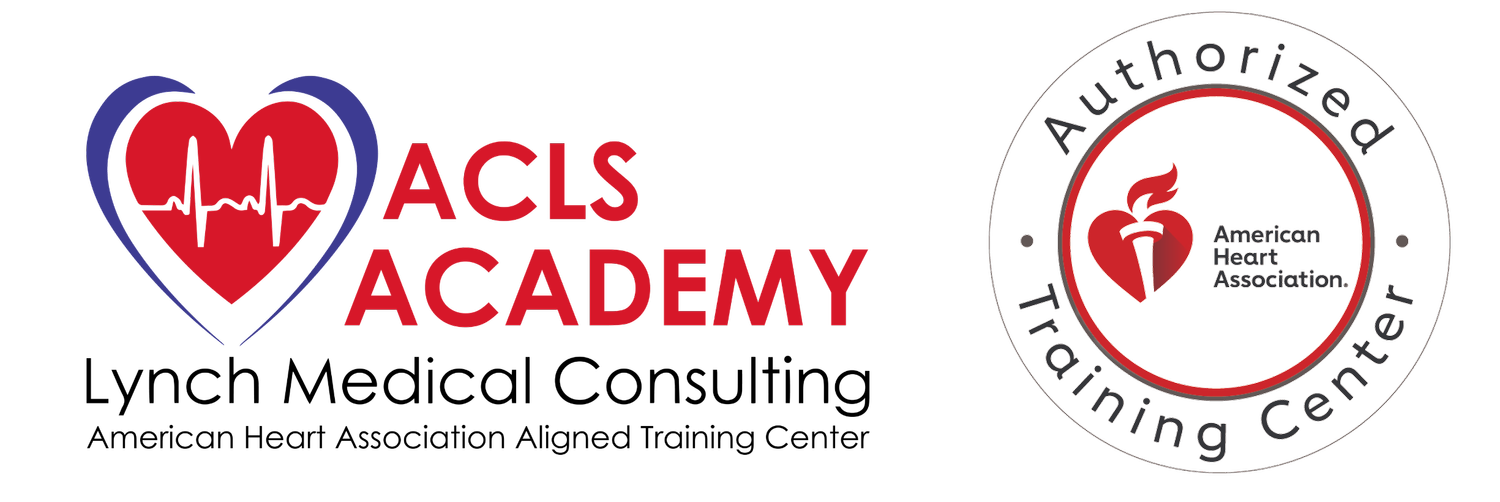Stand out in the job market and consider an Advanced Cardiac Life Support (ACLS) certification to achieve your medical career goals. While all nurses and medical professionals are required to have their Basic Life Support (BLS) certification, but getting an Advanced Cardiac Life Support (ACLS) certification has become an added benefit for medical providers looking to advance their careers.
Advanced Cardiac Life Support (ACLS) is a system of algorithms and best practices recommended by the American Heart Association to treat life-threatening cardiopulmonary crises. The ACLS course builds on the foundation of lifesaving BLS skills, emphasizing the importance of continuous, high-quality CPR and introduces the following concepts:
Team Dynamics and Systems of Care.
How the use of a rapid response team (RRT) or medical emergency team (MET) can improve patient outcomes.
Recognize and manage Acute Coronary Syndrome (ACS), stroke, respiratory arrest, and cardiac arrest.
Recognize bradycardia and tachycardias that may result in cardiac arrest.
Airway management
Perform early management of cardiac arrest until termination of resuscitation or transfer of care.
Evaluate resuscitative efforts.
Resuscitation Medications
Hands on demonstration
After passing the ACLS certification exam, you will receive a provider card that permits you to administer Advanced Cardiovascular Life Support for the next 2 years. On top of the initial course, ACLS recertification is required every two years to keep up with the latest advancements in resuscitation science.
So how can ACLS certification advance your healthcare career? Here are just three examples how:
Diversify job opportunities - ACLS certification can provide you access to higher-paying job opportunities in diversified fields. Additionally, if you’re interested about working in a specialty area such as the intensive care unit or the emergency department, you’ll be ahead of the game with your ACLS certification. Also, Healthcare professionals with ACLS training also have access to career opportunities outside of hospital settings and emergency centers. The skills acquired from this course are helpful in multiple industries where the risk for encountering someone in cardiac arrest is high, including dentistry, athletics, and community work.
Continuing Education – Completing continuing medical education (CME) is absolutely necessary if you’re looking to advance your healthcare career. Not only are CME credits required annually for nurses and many other healthcare providers, they’re also key to keeping up with evolving practices and technologies needed to provide the best patient care possible. Additionally an online certification courses are a great option for healthcare providers looking to earn these continuing education credits quickly and conveniently. You also earn AMA, ANCC, ACPE, and ADA continuing education credits from ACLS and other life support certification courses.
Standing out in the healthcare job market - earning an ACLS certification can advance your healthcare career by making you a valuable member of a resuscitation team and differentiating you from other providers in the highly competitive healthcare field.· Standing out in the healthcare job market - earning an ACLS certification can advance your healthcare career by making you a valuable member of a resuscitation team and differentiating you from other providers in the highly competitive healthcare field.
If we’ve piqued your interest in an ALCS certification, sign up here for our ACLS course. If you require additional guidance, feel free to reach out to us and we’ll be happy to assist.

